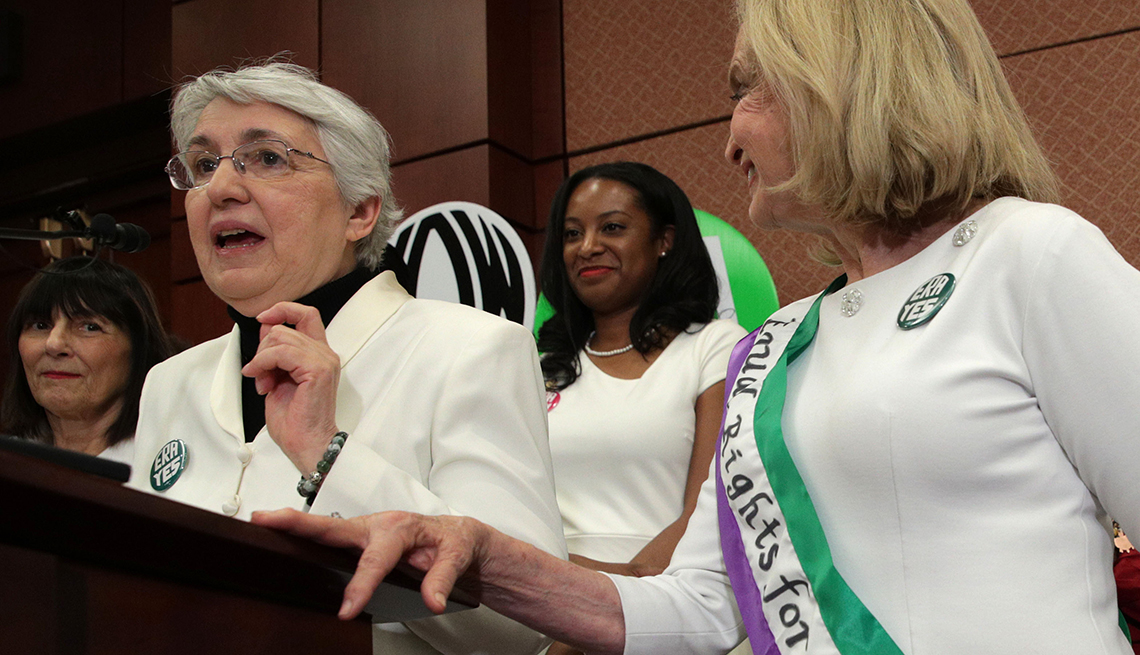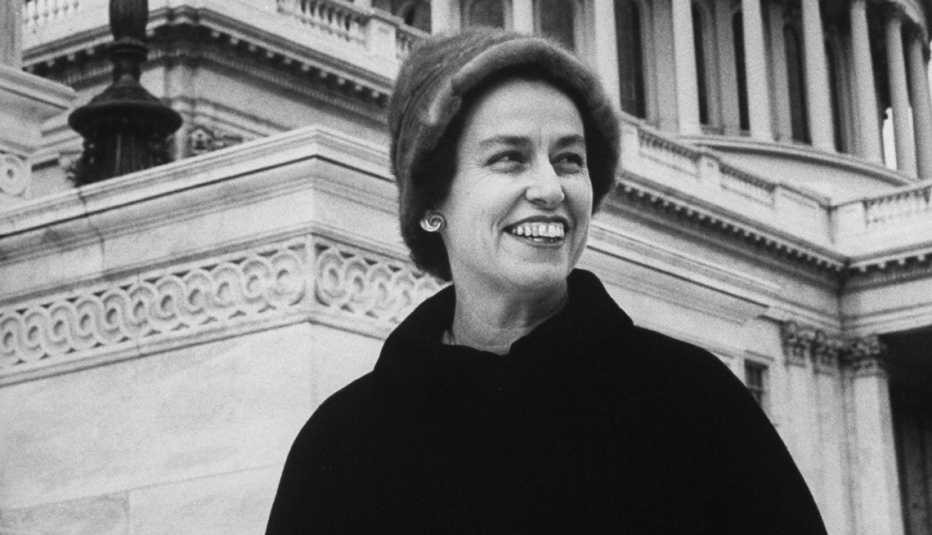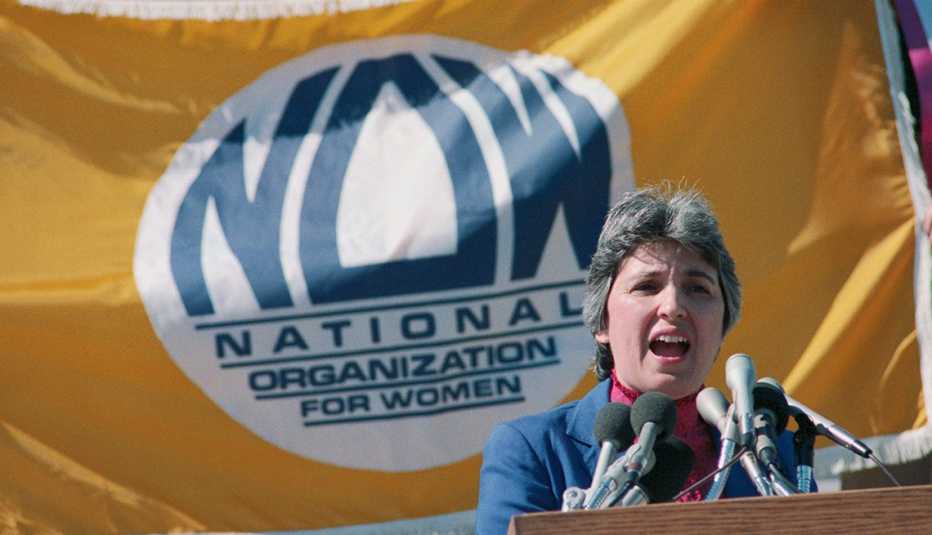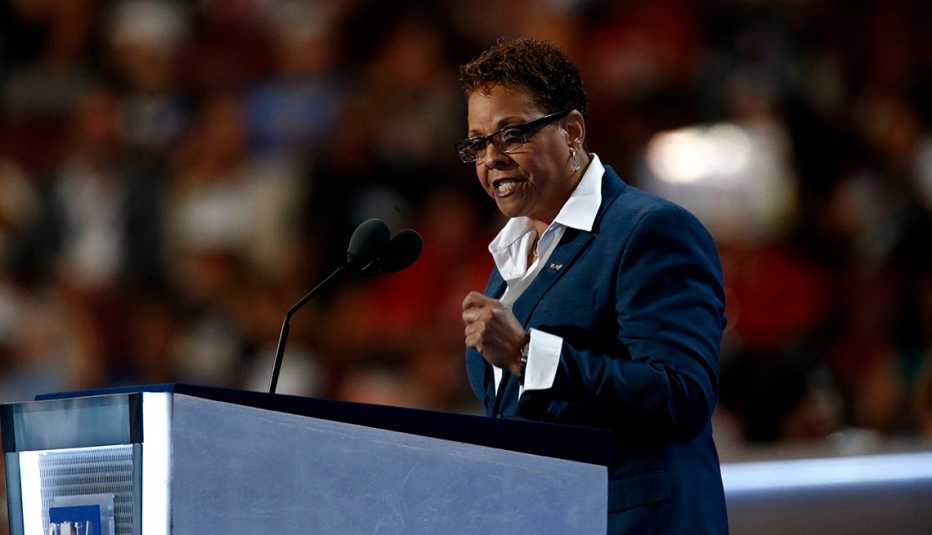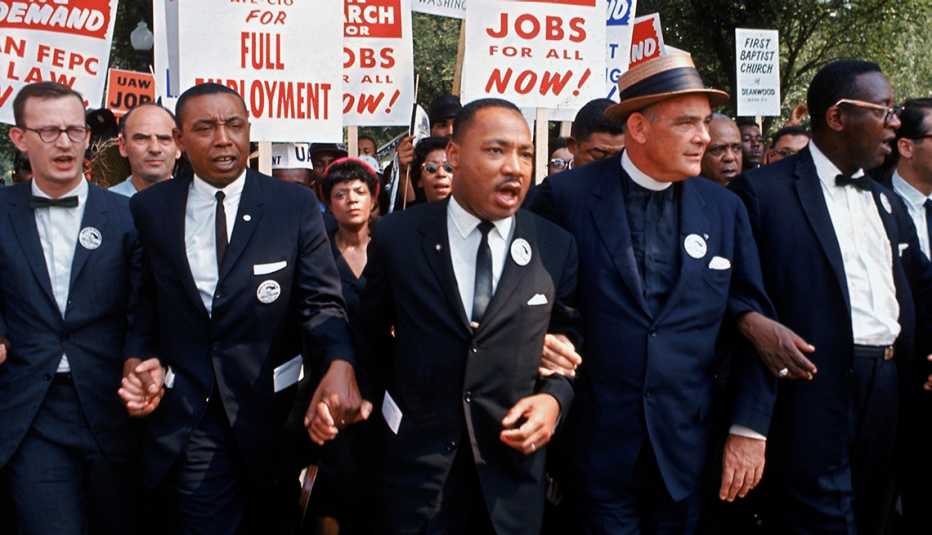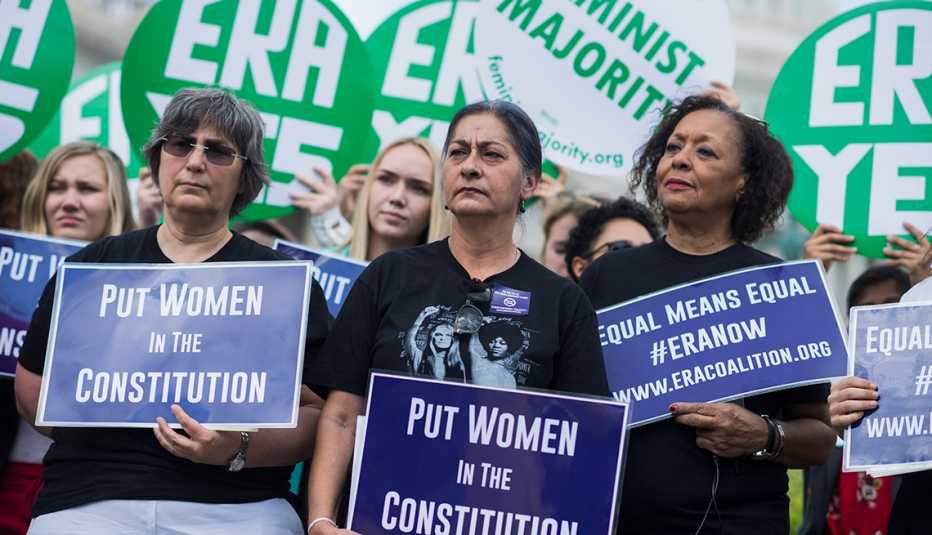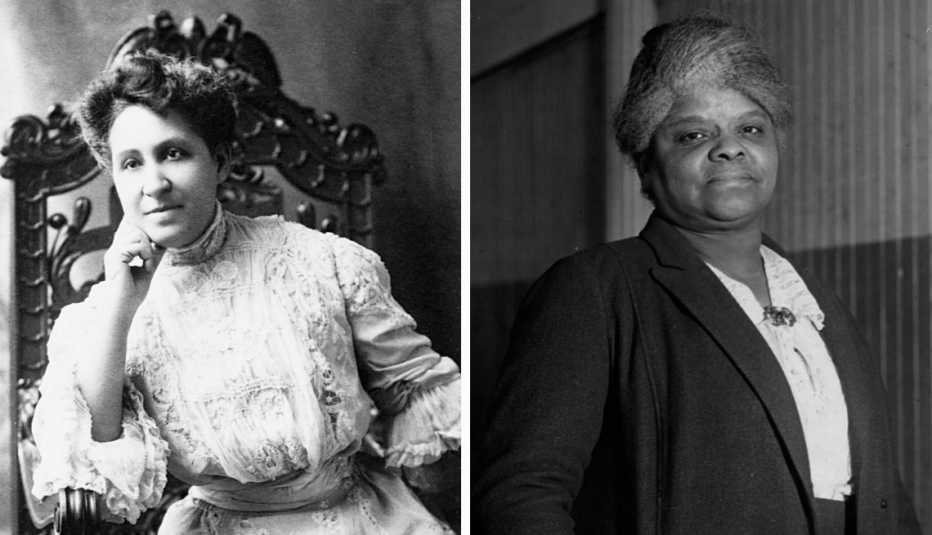AARP Hearing Center
Like relay runners who guard the Olympic torch from its ancient Greek origins to its modern host city, over nearly a century, a succession of committed women has kept a fire in their hearts blazing, determined to pass the Equal Rights Amendment.
Mere months after winning the right to vote in August 1920, feminist leaders shifted their focus to achieving absolute equality.
Here are some of the women who, over time, have been the keepers of the flame and key dates in their struggle:
Sept. 25, 1921, Crystal Eastman

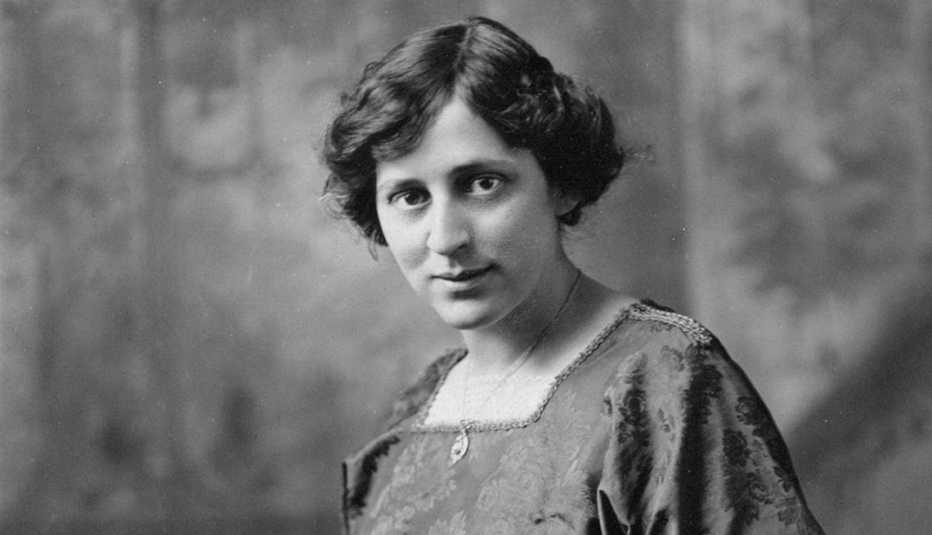
Born: June 25, 1881, in Marlborough, Massachusetts
Died: July 8, 1928, in Erie, Pennsylvania
What happened: After a successful campaign to win the right to vote, members of the National Woman's Party, including Crystal Eastman and Alice Paul, drafted the Equal Rights Amendment and announced they were ready to take the proposal to Congress.
Rep. Daniel Anthony (R-Kan.) a nephew of suffragist Susan B. Anthony, proposed the amendment Dec. 13, 1923. Senate Minority Whip Charles Curtis (R-Kan.), who later became vice president under President Herbert Hoover, was its Senate sponsor. A version of the amendment was proposed in each session of Congress until 1970.
Eastman was a labor lawyer, writer and organizer.
"When she spoke to people — whether it was a small committee or a swarming crowd — hearts beat faster,” said Freda Kirchwey, editor of The Nation from the 1930s into the 1950s.
Eastman wrote a prescient book, Work Accidents and the Law, a year before the 1911 Triangle Shirtwaist Factory fire in New York City that killed 146 garment workers. She also drafted the first workers’ compensation law.
She and younger brother Max launched the radical arts and politics magazine The Liberator, and she cofounded the organization that evolved into the American Civil Liberties Union. Eastman, who died at 47 of kidney disease, urged socialists to foster revolution and embrace joy.
Aug. 10, 1970, Shirley Chisholm

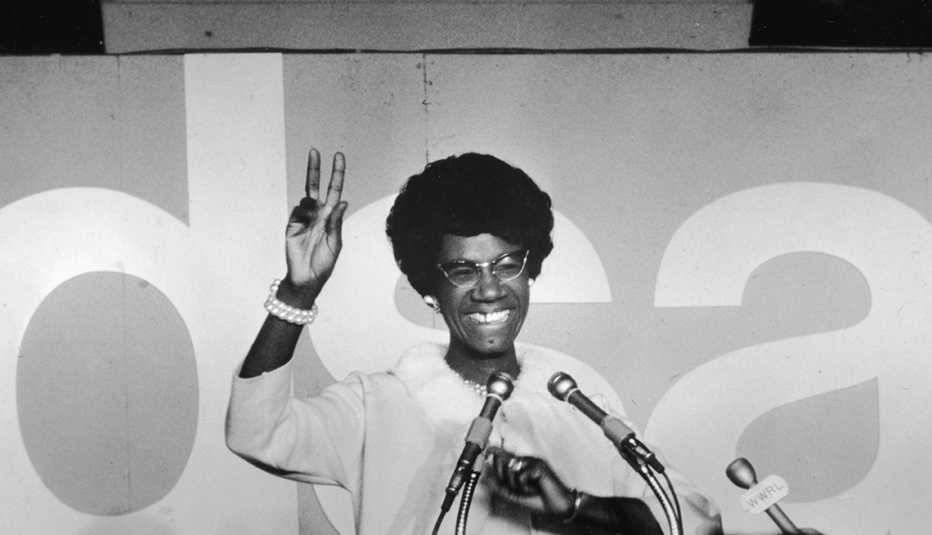
Born: Nov. 30, 1924, in New York City
Died: Jan. 1, 2005, in Ormond Beach, Florida
What happened: Rep. Shirley Chisholm (D-N.Y.) delivered her For the Equal Rights Amendment speech to the House of Representatives, saying that a constitution written without input from the nation's founding mothers or founding fathers of color is incomplete.
Chisholm, elected in 1968 as the first African American congresswoman, said it was not too late to finish the job by passing the ERA.
"Of course, laws will not eliminate prejudice from the hearts of human beings,” she said. “But that is no reason to allow prejudice to continue to be enshrined in our laws, to perpetuate injustice through inaction."
Chisholm spent her life pursuing social justice along with educational opportunities for people of color and became the first African American from a major party to run for president. Despite an underfinanced campaign, she entered 12 primaries and garnered 152 delegates, 10 percent of the total.
With a Constitution that only legally protected white, male interests, she said, “Tremendous amounts of talent are lost to our society just because that talent wears a skirt."































































